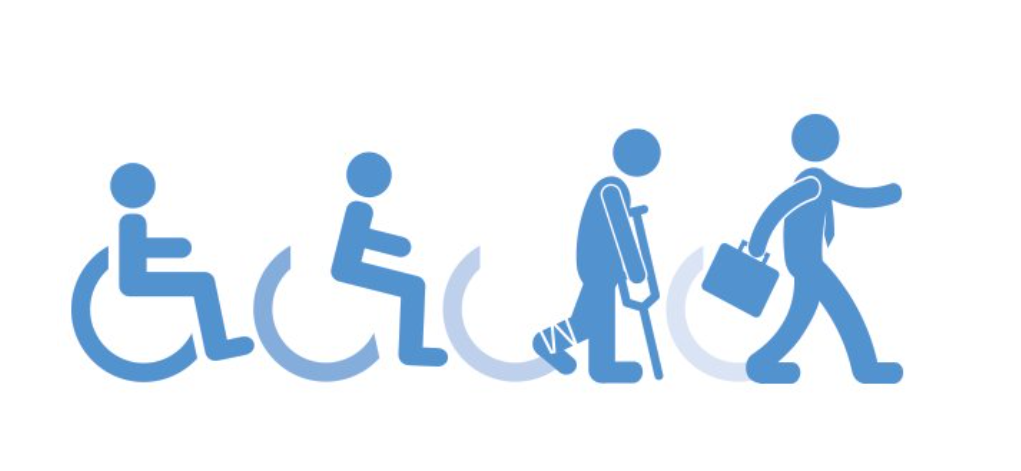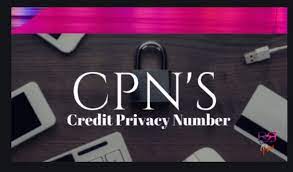May is disability income insurance awareness month
But you probably had no idea. Heck, the only reason I realized it was is that I got an email from an insurance company with a quiz about the chances of needing disability insurance and I was so surprised that I opened it.
One insurance company.
When it’s life insurance awareness I get spammed from dozens of insurance companies. All. Month. Long. Disability insurance awareness? One email. Mid-month.
Disability income insurance (commonly referred to as disability insurance) is the one thing I consistently notice missing from most individuals financial lives. Because of this, when it makes sense it’s the one thing I often end up recommending as part of many client’s plans. It is also what I get the most pushback about because of the cost. But I keep recommending it, where I believe it’s important because in many cases I see that not having disability insurance in place is the one of the biggest threats to my clients not achieving their financial goals. In fact, I think lack of disability coverage is one of the main contributors to the fact that most Americans aren’t financially secure.

So why aren’t more people talking about disability income insurance?
And why do what seems like 99% of the people who walk into my office not have any coverage unless it’s part of their work benefits? The short answer, in my opinion: misinformation.
As a young advisor, I was taught that life insurance and long term care insurance were the most important priorities for myself and my clients- not disability insurance. Disability insurance can be expensive. It can be harder to get approved for privately. Many companies offer some sort of disability coverage for free or very cheap to their employees. Those were some of the justifications I heard for not recommending that clients get coverage and instead allocate those dollars to their investments and either life insurance or long term care depending on their life stage.
What changed my mind about disability income insurance
Then, I got into a car accident. I had concussive symptoms, and it took a LONG time to be able to function normally again-almost 2 years. I couldn’t drive without getting lost and so disoriented that I was on the verge of tears, and I couldn’t focus and my memory was shaky. Which meant I couldn’t see clients and continue to build my business. I’m self employed now and I was back then. Not being able to see clients not only meant I couldn’t continue building my successful business, it meant I wasn’t making any money to pay my bills. Even when I started getting back into work, it was difficult to rebuild momentum when I wasn’t anywhere near 100%. Translation: I spent through almost all of my savings and built up some significant credit card debt trying to survive.
I was stupid. I had looked into disability insurance, but I was also misinformed and I agreed with those who told me it wasn’t worth it. Instead I bought some permanent life insurance, a small long term care policy, and I funded my IRAs.
Disability insurance was too expensive for me. You know what else is expensive? Credit card interest, penalty and taxes on an IRA that is tapped early, lost opportunities from not being able to invest consistently for two years while rebuilding, the stress of waking up in the middle of the night afraid you won’t be able to go back to work quickly enough.
See, I did planning for a living. I had great clients. Was making great money. I owned a home, had no other significant debt aside from my mortgage and car payment, and had 6 months’ living expenses in the bank. But once hospital bills start rolling in along with the bills and invoices to all the specialists I needed to see to try to get better- all of that was really inadequate. To protect my income with insurance would have cost thousands of dollars, but I can guarantee that not having it cost tens of thousands of dollars.
If someone had framed the need for disability income insurance properly so I could put things into perspective I would have spent the money no question.
So let me reframe it for you:
If you got a job offer and the company gave you the option to take a $100,000 salary OR to take a $97,000 salary with the guarantee that if you couldn’t work because of an injury or illness for an extended period of time they would pay you your whole take home pay- for a period of time, tax free- until you could come back, which would you choose?
Personally, I would take the $97,000 salary with the guarantee.
I know there are going to be people reading this who are thinking “I’d take the $100k and just save it so that if I didn’t use it I’d have the money”. My question to those people are: how much of your annual salary are you saving now to non-retirement accounts? And I mean real savings- not money going into a savings account for a future vacation, new car, or house renovation. If you’re the average person it’s probably less than 3% of your income. If you’re not saving regularly and substantially now, it’s likely not going to happen. And even if you were disciplined enough to save the $3k per year, on a $100,000 salary it’d take you 10 years to save $30k. That money likely won’t last long if you’re out of work for something serious.
And serious stuff happens all the time.
We all know someone who is currently or has battled cancer and been in and out of work for doctors appointments, treatments, and rest. I know several who have kept working out of financial necessity. It’s just the reality. People get sick. People get hurt. Even if you use your brain for work, if you’re sick you aren’t going to be as productive or able to work in the same capacity. Whether you like it or not you are likely to be out of work at some point in your career, and if you aren’t properly insured it will put some level of financial strain on you.
Most common questions/comments about disability income insurance:
-
My employer provides disability coverage so I’m all set, right?
Maybe, but maybe not. If you work for a company that offers disability insurance, you need to do the math.
If they pay for your insurance, the benefit is taxable. Many companies will pay for coverage that gives you 60% of your pay up to a limit. If you make $100k, that’s a $60k minus taxes. Many people I know who make $100k couldn’t live off of $60k even if it wasn’t taxable, which means they definitely can’t live off of $40k which is approximately what the take home would be after taxes. Also many companies have a cap that may be less than your salary meaning you get less than 60% minus taxes if you’re a high earner.
If you pay for your insurance, the benefit is tax free but you still may have a gap here. You need to look at what is covered and what your take home pay is. You also need to figure out whether your company benefits would pay out if you could come back to work part time, but not full time.
Lastly, if a big piece of your compensation is bonus or commissions- your work plan likely doesn’t cover those. This lowers the benefit even further if you’re part of this camp
In any case, if you do the math and there is a gap in your coverage it might be worth it to consider supplemental coverage to protect the rest of your paycheck. After all, your paycheck supports your life. -
I don’t need disability income insurance, I can just apply for Social Security Disability Insurance (SSDI).
If you’ve ever needed to deal with the government to get anything, you know it’s not pretty. Endless paperwork, slow updates, and few answers. That being said in order to qualify for SSDI your disability needs to be expected not to resolve itself for at least one year, you can’t be able to work your prior job or any job, and your disability needs to be approved.
If you can qualify, great. But I hope you don’t. Because if you can qualify you’re likely in some very bad shape with a bad accident or very serious medical issues. That’s what would need to happen if you couldn’t work ANY job for at least 1 year or more.
But even if you get them your disability benefits, like social security, are based on your income and not designed to replace your total income. They will be a fraction of your pay. If you don’t anticipate being able to live off of social security in retirement you probably shouldn’t be counting on being able to live off of SSDI payments. -
I can’t see myself ever being unable to work at all.
This is my favorite because this is exactly why most people should actually get disability insurance.
If you went to college, have certifications, or have otherwise climbed the ladder in order to be able to make a higher income, chances are it’d be really hard for you to make what you’re making if you couldn’t perform YOUR job.
When I had my concussion, I maybe could have worked retail or been a greeter at Wal-Mart but I don’t know of any job I could have done in that state that would have made me the money I was making at the time of my accident. And at what cost? I would have needed to completely start over when I was healthy again.
If you’re a dentist and you develop carpal tunnel or break your hand sure you might go teach at a dental school, but what would that do to your income, your lifestyle, and your chances of achieving the financial goals you had for yourself and your family. If you’re a salesperson who makes a great income but has to travel alot for work, what happens if an accident or injury means you can’t fly anymore without significant pain? Could you get paid what you get paid now with the same benefits for a job at home? Maybe not.
The beauty of private disability insurance is that if you purchase the right policy, it will cover you if you can’t do the job you’re currently doing at the pay you’re doing it at. If you have to work less or in a different role- it will still pay out.
The bottom line about disability income insurance
We pay for a lot of stuff that we think makes our lives better or more enjoyable. Many of those things are “expensive” but we think they’re worth it. Not having disability insurance leaves you vulnerable to be in a position where you not only can’t afford your lifestyle, but potentially can’t afford to pay your mortgage or other basic bills for an extended period of time.
When I was studying for my CFP, one of my textbooks said that disability insurance premiums that will cover 100% of your take home pay typically cost between 1-3% of your income. If your costs are on the higher end or above that figure, you likely have a job that makes you more likely to need the coverage and it might be well worth making the sacrifice to get it. If your costs are on the lower end, I often see no reason not to protect yourself. My Comcast bill for cable and internet is $250 per month which is 3% of a $100,000 salary. A car payment. Car insurance. Cell phone bill. Chances are one of these costs you about the same amount.
Considering that, I don’t think disability income insurance is expensive at all.
Disability Income Insurance policies have exclusions and limitations and may not be available in all states. Be sure to carefully evaluate the costs and complete details of any coverage you are considering. Please contact your tax or legal advisor regarding the tax treatment of the policy and policy benefits.
Source: Nicole Peterkin [https://blog.peterkinfinancial.com/]









